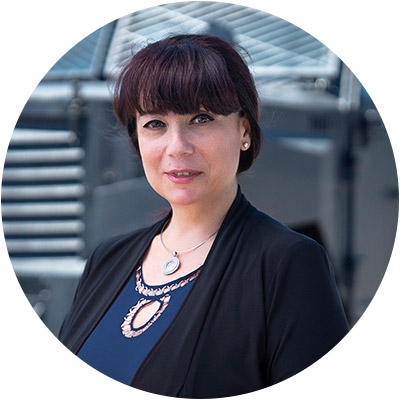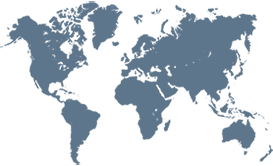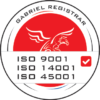The flip side of being a world famous brand
“The value of strong reputation management can be seen across the Gulf, with 78% of senior executives seeing reputation as extremely important, with over 95% of those asked ranking it as important.”
Source: (reputationdefender.com)
The United Arab Emirates (UAE) hold leading positions in many international rankings when it comes to attracting international business and investment. Compared to other countries, UAE has better indicators for the ease of doing business, a skilled workforce, and a fruitful international environment – these are amongst top indicators for the country’s attractiveness. However, IP (Intellectual Property) rights, brand awareness, trademark protection, business rights and their protection are by far not less important indicators. At the moment, unfortunately, international entrepreneurs are at risk.
For a long time, local UAE businesses, local authorities, and courts have considered the UAE to be a free market in which any licensed business could import goods without any form of regulatory control, such as restrictions on the sale of counterfeit merchandise. Hence, the UAE lacked any statutory form of trademark protection. As a result, trademark owners had no statutory means available to protect their interest against trademark infringement.
While there are many existing gaps in UAE’s harmonization of their Intellectual Property (IP) laws with those of the wider international community, there are certain areas to which international investors should pay attention to when considering doing business in the UAE.
In particular, this relates to IP rights and their protection, where the registration process must be improved, along with IP protection for international investors. Historically, the available protection was mainly for the benefit of the UAE-based foreign merchant or the merchant’s local agent, instead of for the rightful owner of a well-known trademark of foreign origin.
At some stage, the inadequacy and lack of protection in the Gulf States for well-known trademarks and signs of foreign origin became an area of concern for developed countries, which gradually, albeit slowly, began to change.
Speaking of international trademark infringement, the world has seen many cases where a company’s logo, brand identity and packaging were closely mirrored in foreign markets. In other countries, many well-known cases have resulted in millions of dollars in fines for non-compliance with immediate name changes mandated. In some cases, trademarks registered by unlicensed parties due to lack of international background checks. In almost all cases, trademark laws and minimum international standards clearly define protection of well-known trademarks, particularly foreign trademarks, and remedies, relief, and sanctions of a deterrent nature.
Based on research conducted by Marsh & McLennan Co., “Intellectual property (IP) theft is a growing global challenge that costs legitimate businesses worldwide US$945bn in lost sales annually. The economic cost of IP theft extends well beyond lost business sales; counterfeiting and piracy cost G20 governments more than US $135bn a year in lost tax revenues and place 2.5m legitimate jobs at risk.” Commercial litigation involving IP is increasing on worldwide scale, including the UAE.
Source: (marsh.com)
While it is true that many Gulf States have implemented legislative systems aimed at providing extensive protection for well-known trademarks, which is generally in line with the internationally-accepted TRIPS (Trade-Related Aspects of Intellectual Property Rights) agreement, there remains a gap between the legal framework and the actual enforcement and application of such trademarks.
The most difficult area of challenge in the Gulf States is the practical application of enforcement procedures. According to a survey on counterfeiting conducted by WIPO, the ineffectiveness of enforcement can be linked to cases of legislation not being drafted effectively, lack of experience in the enforcement of provisions concerning well-known trademarks, lack of judicial training, and lack of national and international coordination and transparency.
The following internationally well-known brands were forced to bring lawsuits against local companies located in the UAE for registering and using identical or confusingly similar mark and trade name – McDonalds, Harrods, Red Bull, Qatar Airways, Toyota, and INKAS®.
One of the companies under the INKAS® umbrella is INKAS® Armored Vehicle Manufacturing (INKAS®). INKAS® is a Canadian manufacturer of armored and special-purpose vehicles. A Canadian-based company, INKAS® has a clone in the UAE which has nothing to do with its headquarters in Canada. For the past decade, two businesses have been successfully developing in parallel, under the same brand identity – with their name, logo, and type of business being 100% identical.
Due to the fact that INKAS® trademarks were not registered in the UAE at the time, an at-the-time UAE partner of INKAS® Canada registered the INKAS® trademarks without consent and knowledge to the legitimate owner. The company became aware of the registration only after the business relationship never came to fruition and fell apart in 2014.
Both companies’ brand and logo are deceptively identical – while INKAS® in Canada was incorporated and opened in the 1990s, the Dubai imposter cloned the brand in 2012. The INKAS® trademarks are owned by the Canadian company and have been used by it since the ‘90s. Moreover, INKAS® has been using its registered insignia on all of its products, including INKAS® armored vehicles since 2000, INKAS® trademarks are undisputedly considered internationally well-known, the unauthorized use of identical and confusingly similar trademarks in The UAE are both fraudulent and cause confusion.
Since 2014, INKAS® has been trying to fight the local company located in the UAE for registering an identical trademark and using it as a trade name. Unfortunately, despite all these years, the local Dubai company openly continues the use of INKAS® trademarks, presumably with the backing and support of its local authorities.
The aforementioned actions are illogical and paradoxical, and they contradict the principles of justice and equity, particularly since the UAE is recognized as a trading hub.
It is my sincere hope that INKAS® will regain control of its trademark in The UAE, that the customer confusion will come to an end, and that our company’s reputation will no longer be at risk on a daily basis. For all international brands currently doing business in the UAE, or planning an entrance – please perform your due diligence, assess the market and plan your steps accordingly.

MARGARITA SIMKIN
Chairperson
INKAS® Group of Companies
Comments are closed.





